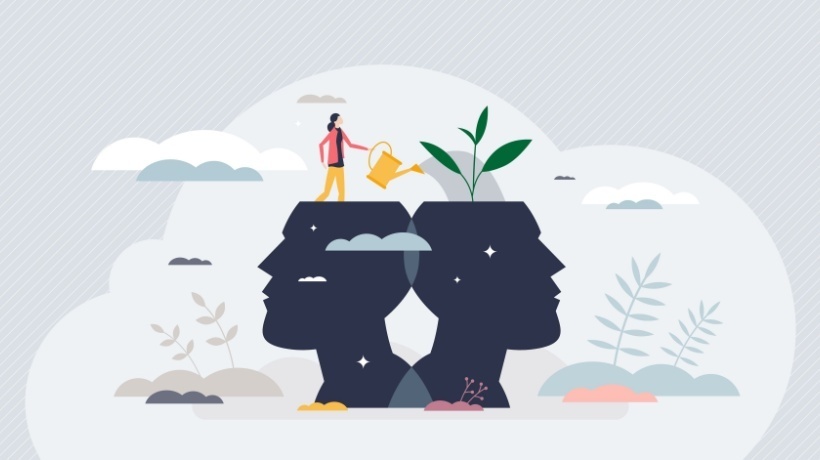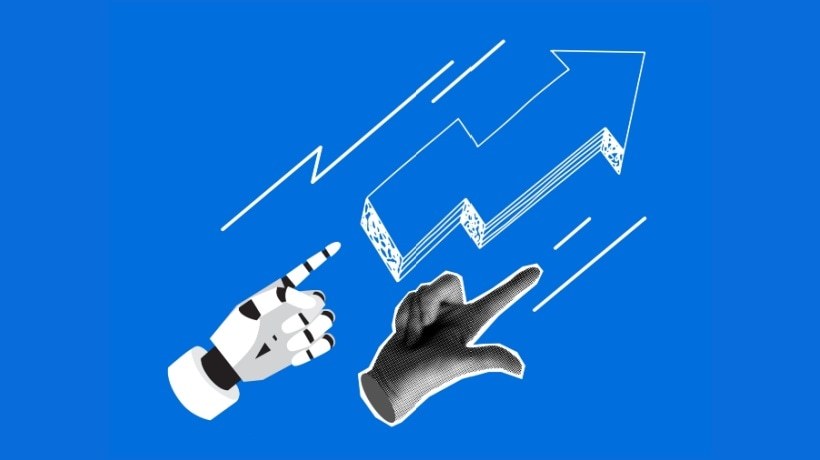AI Isn't Going To Replace Teachers
My interest in EdTech tools started early in my teaching career. As a language teacher, I leaned more toward the use of tools that helped students collaborate and create, but as EdTech tools became the norm, my portfolio of tools and platforms to make teaching more effective grew till I established myself as the resident Ed-Technologist at the Alliance Française de Bangalore. From being the first to explore a new tool, to organizing workshops and EdTech camps, I found myself immersed in the magic that technology brought to our classrooms.
But the key to using EdTech solutions smartly was (and still is) knowing not to get carried away by the tool, and remembering to put students first. The staffroom may be buzzing with EdTech and Artificial Intelligence (AI) tools and platforms promising innovative teaching solutions, but we should never forget that human-first pedagogy should always be at the heart of our teaching practices.
What Is Human-First Pedagogy?
An approach that places human connection, understanding, and responsiveness at the core of teaching, human-first pedagogy goes beyond simply delivering content and places a strong emphasis on:
Building Relationships
At the core of human-first pedagogy lies the belief that strong, positive relationships between teachers and students are essential for effective learning. These relationships lead to a sense of trust, belonging, and motivation, creating a safe space for students to take risks, ask questions, and challenge themselves. Several studies have demonstrated a clear link between strong teacher-student relationships and positive outcomes in both academic achievement and social-emotional learning.
Creating A Positive Learning Environment
Human-first pedagogy goes beyond simply imparting knowledge, focusing on creating a positive and stimulating learning environment that leads to curiosity, collaboration, and critical thinking. Characterized by open communication, mutual respect, and opportunities for student voice and choice, this approach allows teachers to adapt their instruction to meet the individual needs and learning styles of their students, something that AI tools currently struggle with.
Adapting Lessons In Real Time
Effective teachers are not simply deliverers of information; they are dynamic facilitators who can adjust their teaching approach based on their students’ needs and understanding. Human-first pedagogy empowers teachers to readjust their lessons in real time, responding to student confusion, adjusting the pace of instruction, and introducing new concepts or resources as needed. This ability to adapt to the unique needs of each learner is crucial for maximizing student engagement and fostering a deeper understanding of the material.
Why Is Human-First Pedagogy Still Relevant In The Age Of Generative AI?
From the beginning of 2023, an average of approximately 1000 new AI tools have been unveiled every month, marking what Bill Gates refers to as the second revolutionary showcase of technology since the introduction of the graphical User Interface in 1980 . While technology offers an array of benefits in education, there is a large body of research that consistently underlines the indispensability of human interaction in the learning process.
So How Can Teachers Use AI Tools Without Sacrificing The Human Angle?
While AI cannot replace human interaction, it can be a valuable tool to enhance learning when used strategically:
AI As An Administrative Assistant
Using AI for administrative tasks such as grading repetitive assignments or providing basic information allows teachers to dedicate more time to personalized learning activities, in-depth discussions, and building relationships with students.
AI For Creation Of Learning Material, Not The Entire Learning Experience
When using EdTech tools, teachers should focus on facilitating discussion, critical thinking, and problem-solving rather than the passive consumption of information. While generative AI can empower teachers to publish highly relevant learning material and provide students with updated information about the world, it is important to remember that technology should just be a springboard for deeper exploration, not a substitute for meaningful interactions and collaboration.
AI To Create Environments For Social-Emotional Learning
Social-emotional learning skills, such as building empathy, resilience, and effective communication, are crucial for success in life and are areas where AI currently has limitations. However, teachers can lean on AI tools to quickly create exercises that foster human interactions, and use their energy on the key skills needed to survive in an AI-powered world. The human-first pedagogy ensures that these crucial skills remain a core focus in the classroom, nurturing well-rounded individuals equipped to navigate the complexities of the world.
By integrating human-first pedagogy while harnessing the magic of technology, we can create classrooms that nurture meaningful connections, deep learning, and empowered students who are prepared to thrive in an ever-evolving world. Technology can be built that focuses on empowering both teachers and learners with the tools needed to understand the skill requirements of industry without sacrificing human interactions:
- Career counseling by an AI-powered mentor
After a brief chat with an AI-powered mentor, users can get information about emerging roles and future-proof career paths that align with their profile and life goals. They can also get an AI-generated career recommendations and a structured learning journey that will help them acquire industry-relevant skills land their dream job. - AI-powered creator platforms enable educators to publish up-to-date lessons within minutes
They can provide highly relevant learning material to their students, without spending hours conducting research and compiling the material. This allows them to focus their energy on interacting with students, providing feedback and enriching the learning experience with their expert insights.
Let’s not forget that the heart of education lies in the human connections, understanding, and guidance that only dedicated and passionate educators can truly provide.









